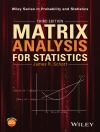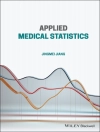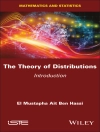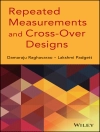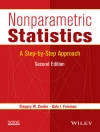Visualize This is a guide on how to visualize and tell stories with data, providing practical design tips complemented with step-by-step tutorials. It begins with a description of the huge growth of data and visualization in industry, news, and gov’t and opportunities for those who tell stories with data. Logically it moves on to actual stories in data-statistical ones with trends and human stories. the technical part comes up quickly with how to gather, parse and format data with Python, R, Excel, Google docs, etc and details tools to visualize data-native graphics for the Web like Action Script, Flash libraries, PHP, Java Script, CSS, HTML. Every chapter provides an example as well. Patterns over time and kinds of data charts are followed by proportions, chart types and examples. Next, examples and descriptions of outliers and how to show them, different kinds of maps, how to guide your readers and explain the data 'in the visualization’. The book ends with a value-add appendix on graphical perception.
Data Points focuses on the approach to visualization and data. Visualization is a medium that can be used as a tool, art, a way to tell stories, etc., Data Points guides readers through making data approachable through visualization techniques and best practices. The focus is on designing with a purpose in mind. Data Points discusses why recipes (from the rules) work and expands on how readers can make their own recipes. The book is example-driven, featuring work from people in areas of art, design, business, statistics, computer science, cartography, and online media, as well as many of the author’s own illustrations. The major sections of the book cover:
* Visualization as Medium — In the same way not all movies are documentaries, not all visualization is about optimal visual perception.
* Data Representation — There are rules across all visualization applications, such as the use of appropriate shapes to accurately represent values.
* Design with Purpose — Rules can be broken though. It all depends on who and what you’re designing for.
Data Points digs deep into the foundations of data visualization:
* Understanding Data and Visualization
* Representing Data
* Exploring Data Visually
* Designing for an Audience
* Visualizing with Clarity
* Putting Everything Into Practice with Tools and Resources
Spis treści
Introduction xv
1 Telling Stories with Data 1
More Than Numbers 2
What to Look For 8
Design 13
Wrapping Up 20
2 Handling Data 21
Gather Data 22
Formatting Data 38
Wrapping Up 52
3 Choosing Tools to Visualize Data 53
Out-of-the-Box Visualization 54
Programming 62
Illustration 76
Mapping 80
Survey Your Options 88
Wrapping Up 89
4 Visualizing Patterns over Time .91
What to Look for over Time 92
Discrete Points in Time 93
Continuous Data 118
Wrapping Up 132
5 Visualizing Proportions 135
What to Look for in Proportions 136
Parts of a Whole 136
Proportions over Time 161
Wrapping Up 178
6 Visualizing Relationships 179
What Relationships to Look For 180
Correlation 180
Distribution 200
Comparison 213
Wrapping Up 226
7 Spotting Differences 227
What to Look For 228
Comparing across Multiple Variables 228
Reducing Dimensions 258
Searching for Outliers 265
Wrapping Up 269
8 Visualizing Spatial Relationships 271
What to Look For 272
Specific Locations 272
Regions 285
Over Space and Time 302
Wrapping Up 325
9 Designing with a Purpose 327
Prepare Yourself 328
Prepare Your Readers 330
Visual Cues 334
Good Visualization 340
Wrapping Up 341
Index 343
O autorze
Nathan Yau, Ph.D. provides statistical consulting to groups who want to make use of their data, specifically in the area of visualization. His Ph.D. is in statistics and his dissertation was on personal data collection and how visualization can be used in everyday contexts. Nathan is the creator of flowingdata.com which has 80, 000 subscribers, more than a million page views per month, ?and 40, 000 followers on Twitter. He is the author of Visualize This: The Flowing Data Guide to Design, Visualization, and Statistics and Data Points: Visualizations That Mean Something.?Nathan has developed many online projects, conducted numerous workshops and been highlighted in the Economist, NYT, CNN, Creativity Online, Pop!Tech, HOW Design, and F magazine.






